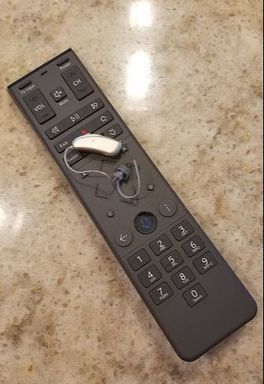|
A note from Ruth: Last month, I wrote about how hearing loss impacts our health as we age and in turn, our quality of life in retirement. As a follow-up, I asked my brother John to contribute some thoughts on hearing loss and correction, since he deals with it on a daily basis. He is a highly respected Doctor of Audiology and is passionate about helping people remain connected through better hearing. He is contributing this guest blog in order to provide additional perspective on getting help, whether you or a loved one or a friend are impacted by hearing loss. Contributed by Dr. John Tongen After nearly 40 years as an audiologist, I’ve come to understand that hearing loss is a sensitive topic to many people. Time and again, I’ve observed emotions ranging anywhere from deep sadness to outright indignation at its mere mention. With that in mind, perhaps I can best contribute to this audience by sharing some insight I've gained, not only during my years as an audiologist, but from being a hearing aid user, myself.  The Hurdles Let’s be honest. No one is jumping up and down with joy at the prospect of getting hearing aids. It is simply a matter of fact that hearing aids don’t curry favor with people; chiefly, I believe, for two reasons: First, as is true with many systems within our body, our ability to hear and process information can diminish quite rapidly as we get older. For some reason, however, as soon as we associate anything with aging, most of us seem to be pretty good at putting off doing anything about it. In fact, it is well documented that people wait an average of 7-10 years from the time they first become aware of a hearing problem before actually addressing it. Second, the price for a quality set of hearing aids will generally fall somewhere between $4000 and $6000. That’s a big investment, to be sure! With that in mind, I’ve attempted to help patients address the cost factor by giving some perspective to those numbers. I tell patients that my cable TV bill is about $100 a month. In one year's time, that totals $1200. After 5 years, I will have spent $6000. For your information, I watch no more than 60-90 minutes of TV a day. From a comparison standpoint, the price of my hearing aids is also about $6000. I wear them 12 hours a day. They allow me to be fully functional at work. They allow me to socialize with friends and family. They keep me connected to the people in my world. They save me from frequent embarrassment in conversations. And they allow me to hear my granddaughter say “I love you, Papa.” All that, for the same price as cable TV. As important, or perhaps an even more important consideration, is that the lack of cognitive stimulation that accompanies even a mild hearing loss is associated with cognitive decline and dementia. Reports from Johns Hopkins Medical Center (and others) indicate that a mild hearing loss can increase the risk of developing dementia by 200% and up to 500% for those with a severe hearing loss. On top of that, the risk of falling increases 140% with every additional degree of unmanaged hearing loss. With that said, if I can increase my enjoyment of conversation with friends and family, reduce my social embarrassment as well as the frustration of those wishing to visit with me all while substantially reducing my risk of falling and dementia for the same price as cable TV, I don't see that there's much to debate. In fact, I don't think of it in terms of "I have to" wear hearing aids. When I see all they do for me, my thinking is, "Thank goodness I can wear hearing aids". I may not like having to wear hearing aids, but I sure like all the amazing things they do for my quality of life.
3 Comments
|
AuthorRuth Tongen helps people plan and live meaningful, fun and healthier retirements. Archives
January 2022
Categories
All
|
|
Ruth Tongen 952-223-1121 [email protected] www.ruthtongen.com Copyright © ruthtongen.com. All Rights Reserved. |
Questions or to
Schedule a Free Consultation Sign up to receive Meanderings:
The New Retirement via email x
Receive a copy of Meanderings: New Ideas for Retirement in your email.
|


 RSS Feed
RSS Feed
